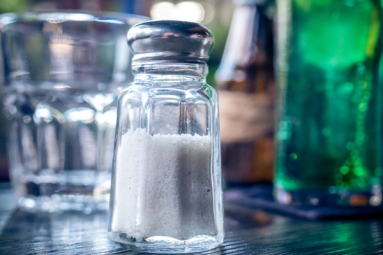
(Image source from: Canva.com)
Potassium is an essential mineral and electrolyte that significantly contributes to the proper functioning of several bodily processes. It plays a vital role in fluid regulation, nerve signaling, and muscular activity. This mineral is plentiful in various foods such as bananas, spinach, avocados, sweet potatoes, and beans. Adequate potassium intake is crucial for maintaining heart health, optimal kidney function, and the overall vitality of cells. When consumed in suitable quantities, potassium offers numerous health benefits. It aids in maintaining the body's electrolyte balance, assists in regulating blood pressure, and facilitates the efficient operation of muscles and nerves. Continue reading to discover why incorporating potassium into your diet is so important.
Reasons to include potassium as a fundamental part of your diet
Natural regulation of blood pressure: Potassium counters the impact of sodium, a leading factor in elevated blood pressure. By relaxing the walls of blood vessels and encouraging sodium to be expelled through urine, potassium is instrumental in controlling and lowering blood pressure. This makes it an important nutrient for avoiding hypertension and its cardiovascular complications.
Promotion of heart health: Consistent potassium intake is crucial for ensuring that heart muscles contract effectively and maintain a steady rhythm. Insufficient potassium levels can interfere with heart functionality, heightening the risk of arrhythmias or even sudden cardiac events. Regular consumption of potassium is linked to a decreased likelihood of strokes and heart disease, which is critical for long-term heart health.
Prevention of muscle cramps and weakness: Potassium is essential for the contraction and relaxation of muscles. A deficiency can result in painful cramps, spasms, and overall weakness. Individuals who are athletes or engage in regular physical activity particularly benefit from potassium-rich foods, as they assist in muscle recovery and help avoid cramps during physical exertion.
Support for a healthy nervous system: The nervous system requires electrical impulses to facilitate communication between the brain and the rest of the body. Potassium is key in transmitting these signals by preserving the electrochemical balance across cell membranes. Without sufficient potassium, nerve responses can become delayed or erratic, impacting reflexes, coordination, and mental function.
Regulation of body fluid levels: Potassium collaborates with sodium to manage the fluid balance within the body. This equilibrium is crucial for ensuring healthy cellular function, effective digestion, and proper blood volume. Regular potassium consumption helps to avert issues such as fluid retention, bloating, and dehydration, particularly during exercise or in hot conditions.
Prevention of kidney stones: Foods high in potassium, especially those derived from fruits and vegetables, aid in decreasing the amount of calcium lost through urine. This reduction subsequently lowers the likelihood of developing calcium-based kidney stones. Additionally, potassium promotes the removal of waste and toxins from the body, thereby enhancing kidney health and urinary function over time.
Enhancement of bone density: Potassium plays a role in neutralizing acids within the body that can deplete calcium from bones. By safeguarding calcium reserves and improving mineral absorption, potassium fosters the development of stronger, healthier bones. This aspect is especially vital for older individuals who may be at risk for osteoporosis or fractures.
Supports regulation of blood sugar levels: Potassium contributes to enhanced insulin sensitivity and the metabolism of glucose. Individuals with diminished potassium levels may face a higher likelihood of developing insulin resistance, thereby elevating their chances of type 2 diabetes. Incorporating foods abundant in potassium can thus help in effectively managing blood sugar levels.
A diet that is rich in potassium promotes improved overall physical and mental well-being.









